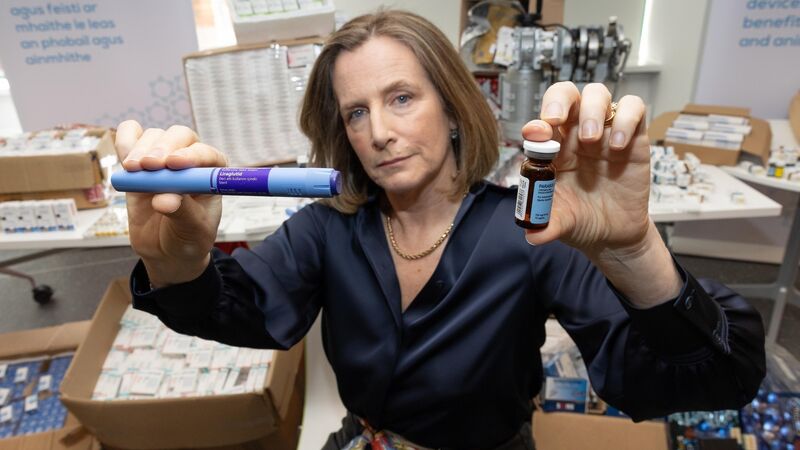Illegal weight-loss drugs among 400,000 units impounded by HPRA in six months

HPRA director of compliance Gráinne Power with examples of the 382,395 dosage units of falsified and other illegal medicines impounded by the HPRA, working with Revenue and customs officers. File picture: Julien Behal
Nearly 400,000 units of illegal medicines — including sedatives, anabolic steroids, and unauthorised medicines promoted online as “weight-loss injections” and “skinny jabs” — were seized by the Health Products Regulatory Authority (HPRA) in the first six months of this year.
The HPRA, working with Revenue and customs officers, detained some 382,395 dosage units of falsified and other illegal medicines during that period.













